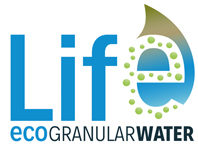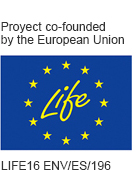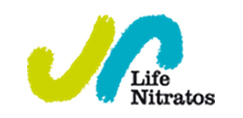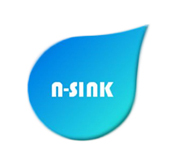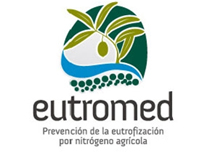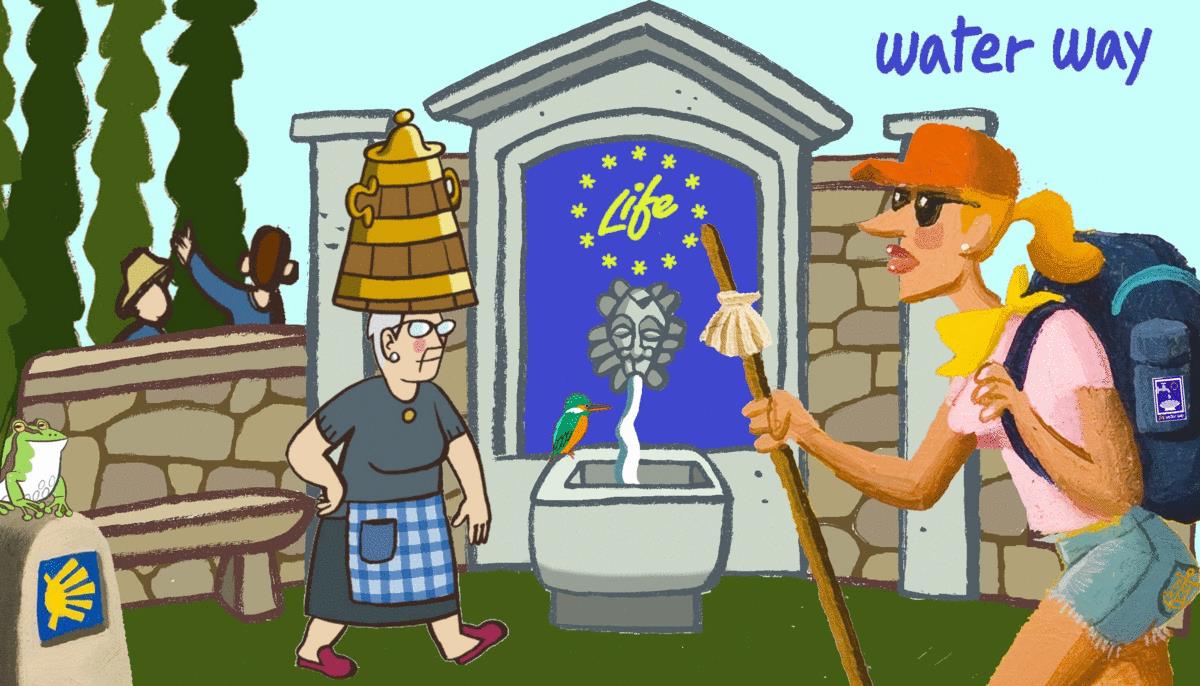LIFE ALCHEMIA
Towards a smart & integral treatment of natural radioactivity in water provision services.
In this video one of its protagonists tells you the main objective of the project:
LIFE LIBERNITRATE
Responsible reduction of nitrates in the comprehensive water cycle.
LIFE LIBERNITRATE aims to reduce the concentration of nitrates in the entire water cycle through an integrated innovative, cost-efficient and highly transferrable technology. The proposed solution will be implemented in a pilot plant and will consist of an adsorption bed made of active silica, obtained from waste ashes from generated during the controlled incineration of rice straw. The active silica will be obtained through a second prototype for treating this ash.
In this video one of its protagonists tells you the main objective of the project:
LIFE NITRATES
Repercussions of agricultural practices on the nitrate pollution of inland waters.
This project has developed a study about the nitrate flow, caused by agriculture and livestock, across water bodies. Furthermore, an IT tool has been designed to quantify and reduce water nitrate pollution. In addition, agricultural good practices have been promoted among the local farmers.
N-SINK LIFE PROJECT
Reduction of waste water nitrogen load: demonstrations and modelling.
The N-SINK project aimed to demonstrate cost efficient wastewater treatment processes for nitrogen removal in order to reduce eutrophication of the Baltic sea. It has demonstrated an innovative sediment filtration process for reducing nitrogen load when wastewater nitrogen is released as nitrate. This has used natural ecosystem service provided by the sediment.
LIFE IMPETUS
Improving current barriers for controlling pharmaceutical compounds in urban wastewater treatment plants.
LIFE Impetus aims at demonstrating measures for improving pharmaceutical compounds (PhC) removal in urban WWTPs with conventional activated sludge (CAS) treatment. As CAS is the most common biological process in urban WWTPs, the solutions may be easily transferred to wastewater treatment across Europe. The project involves long-term field tests in two Portuguese CAS-WWTPs in water stressed regions (Lisbon and Algarve), focusing on performance assessment, using benchmarking tools, and chemical enhancement measures easily implementable in the current treatment lines.
LIFE EUTROMED
Demonstrative technique for the prevention of eutrophication caused by agricultural nitrogen in surface waters in the Mediterranean climate zone.
The Eutromed LIFE Project has demonstrated the effectiveness of vegetal filters for the reduction of nitrogen levels in runoff water in agricultural areas in the Mediterranean climate zone. Furthermore, the systems have demonstrated to be effective for the erosion control in cultivated areas. The project has also implemented preventive actions (promotion of agricultural good practices) addressed to avoid water nitrate pollution.
LIFE HYMEMB
Tailoring Hybrid Membrane Process for Sustainable Drinking Water Production.
In LIFE Hymemb project, a hybrid PAC/MF (powdered activated carbon adsorption and ceramic microfiltration) prototype was developed for a 1.5-year field test in Alcantarilha water treatment plant (Algarve, Portugal) and to demonstrate the process effectiveness, reliability and efficiency against pharmaceuticals, pesticides, cyanotoxins, viruses and protozoan (oo)cysts in drinking water. PAC/MF combines a low-pressure membrane technology, microfiltration with ceramic membranes with PAC adsorption, tailored to fit the intake water quality.
LIFE WATER WAY
Creating a new concept of natural drinking fountains and demonstrating its viability along St James’ way.
The main objective of the LIFE WATER WAY project is to develop a strategy in accordance with the Drinking Water Directive to recover traditional public drinking fountains as a micro-supply solution in areas where centralised water consumption networks have no reach.
LIFE InSiTRATE
In situ treatment technology for drinking water production from nitrate-polluted groundwater.
InSiTrate project has demonstrates at pilot scale the feasibility of in situ bioremediation of nitrate-polluted groundwater for the production of drinking water. The Life+ InSiTrate Project aims to contribute to solve the problem of drinking water supply to municipalities and small communities by making available their closest freshwater sources and avoiding the costly transport of freshwater from other sources.
In this video one of its protagonists tells you the main objective of the project:
LIFE MCUBO
Modelling, Measurement and Improvement of the water management environmental impact in the food Industry.
The main objective of the LIFE MCUBO Project is to minimize the environmental impact related to water management in the subsectors with the highest water consumption (meat, juices and canned vegetables) through an effective demonstration, at 3 industrial plants, of an integral management system based on the use of technologies.
LIFE ALGAECAN
Adding sustainability to the fruit and vegetable processing industry through solar-powered algal wastewater treatment.
The LIFE ALGAECAN project proposes a sustainable treatment model of high loaded and salty effluents that combines cost-effective heterotrophic algae cultivation with spray drying of the collected microalgae to obtain a product of commercial interest as raw material for the production of biofertilisers, animal feed, bioplastic, etc.

